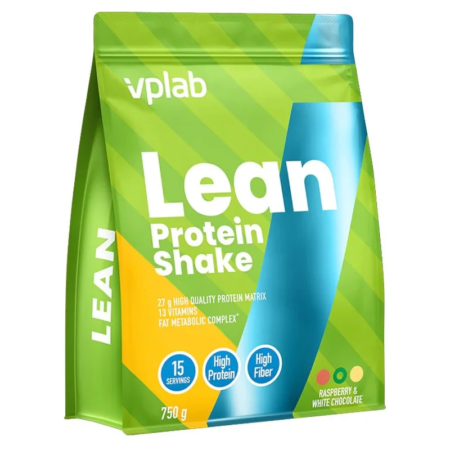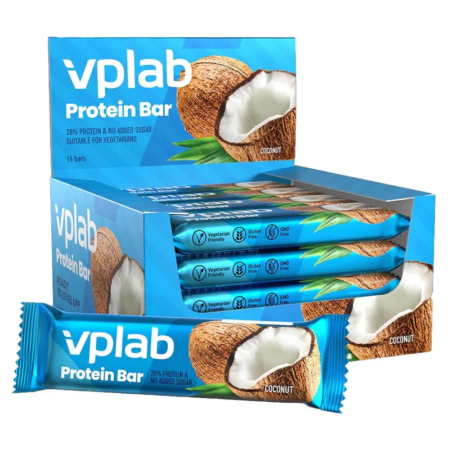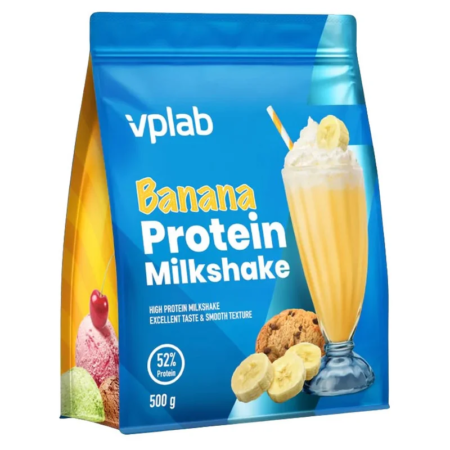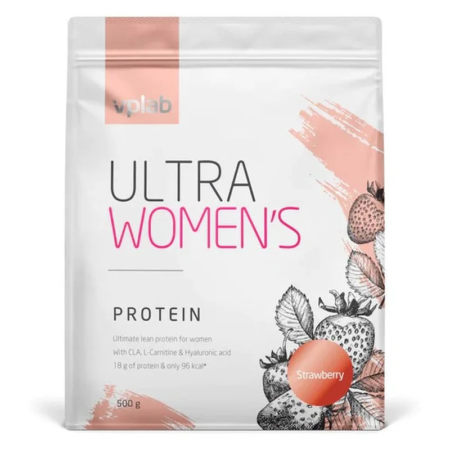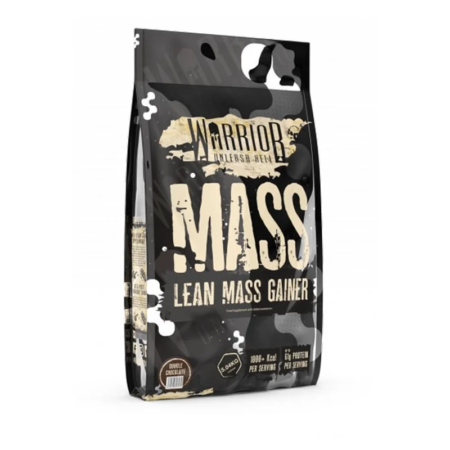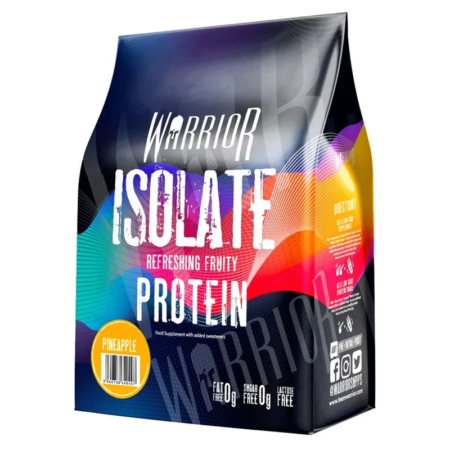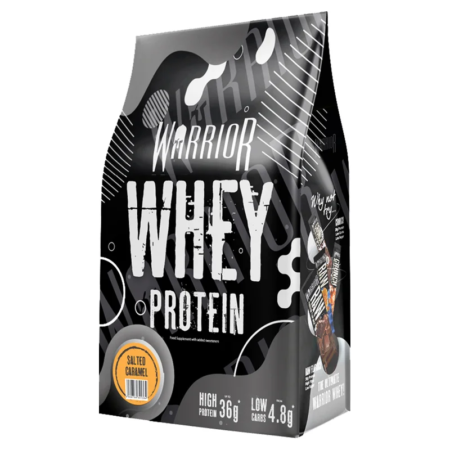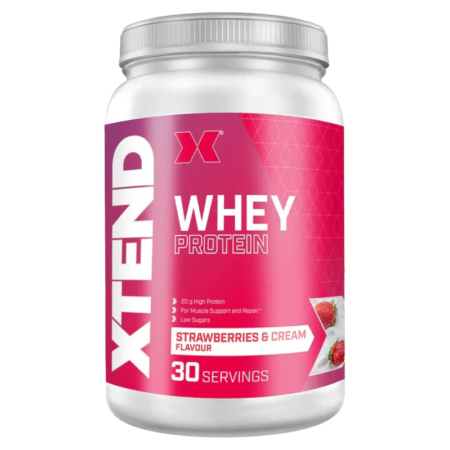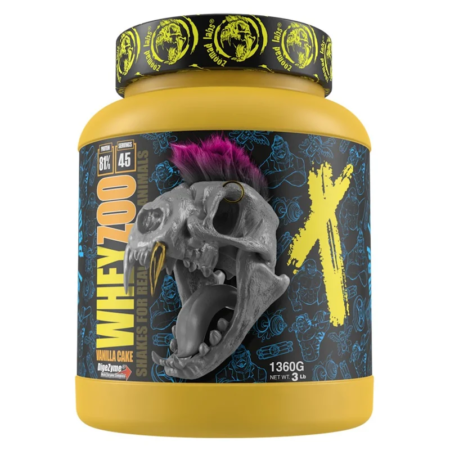Whey protein
Whey protein is an animal protein extracted from cow’s milk. The terms “whey protein” or “whey protein” are also commonly used.
Whey protein is not just characterized by its high protein content. It also contains a large number of vitamins such as B1, B2 and B6 as well as calcium, potassium, phosphorus and lactose, making it an extremely popular supplement.
Many performance athletes, martial artists and strength athletes turn to whey proteins when they are concerned about their protein intake. It is the most popular protein powder and is part of the standard diet of many successful athletes. If you have an allergy, you should avoid whey proteins – as well as all dietary supplements. If, for example, you are allergic to whey, you should use plant-based alternatives or beef protein (link to subcategory) instead of whey protein. We also advise against excessive consumption.
Benefits of whey protein for athletes
Performance athletes, martial artists and strength athletes use whey protein as a dietary supplement to cover their increased protein requirements. Whey protein is considered to be the quickest acting natural protein and thus an “express protein“.
It is extremely digestible and is absorbed and utilized by the human body more quickly than many other proteins. It also has a particularly high number of branched-chain amino acids (BCAAs) (leucine, isoleucine and valine) and glutamine. The protein is absorbed into your blood after only 30 to 45 minutes, providing your body with the cell building blocks needed for muscle building and regeneration.
Muscle building and regeneration with whey protein
Whey protein ensures that your muscles recover faster after training. It effectively and specifically supports muscle building. Due to its high biological value (more below), whey protein is rapidly converted into the body’s own protein and is thus quickly available to your body to build muscle mass.
Dieting with whey protein
Those who do not train and pay attention to their diet cannot break down fat. Whey protein is also not a miracle cure that melts away the fat. However, when used correctly, whey protein can effectively help you reduce fat and build muscle while dieting. Those who supplement whey protein during their training are often less interested in losing weight. Their goal is a slim, sporty and defined figure, which is more difficult to achieve without a regular workout and sufficient protein intake.
Production of whey protein
The protein contained in milk consists of about 80% casein protein and 20% whey protein. During the production of whey protein, the two types of protein are first separated from each other. The whey protein is then filtered out and dried. What remains is a fine whey protein powder with a particularly high protein content and a high biological value.
CFM whey protein
What is CFM whey protein? CFM is the abbreviation for cross-flow microfiltration. This is a special process in which the whey protein is processed cold so that the protein retains its purity. Milk sugar
and fat are largely removed thanks to filtration, while bioactive substances and essential amino acids are preserved to a greater extent. CFM whey protein has a high protein content due to cold processing, is quickly digestible and is rich in BCAAs.
Biological value of whey protein
The biological value says a lot about the quality of proteins. It indicates how efficiently the proteins from food are converted into the body’s own protein. The higher the value, the less powder is needed to build muscle. For example, whole egg has a biological value of 100 and beef has a value of 80. Wheat flour, on the other hand, only has a value of about 57.
With a biological value of 104, whey protein surpasses any other natural source of protein.
Whey concentrate, isolate and hydroisolate
Whey protein is available as a concentrate, isolate or hydroisolate. Each option is concentrated to varying degrees, and some options contain additional fats and carbohydrates. For beginners, a concentrate is usually sufficient, while ambitious athletes prefer isolate and hydroisolate – especially before competitions, when no additional fat or carbohydrates should be consumed. You can learn more about whey isolate here (link to whey isolate at bottom of page)
Whey protein: when to take it?
Before or after training – when should I take whey protein?
How efficiently the human body transforms proteins from food into muscle mass depends on three factors: the amount of protein, the type of protein and when the protein is taken. So exactly when should you reach for your whey protein shake?
- In the morning: The human body can only store protein for a very limited time or not at all. That’s why you have to eat protein all the time. After 8 hours of sleep, your reserves are exhausted. Drink your protein shake in the morning so that your body does not metabolize its own muscle protein and to stimulate protein synthesis.
- After training: Whey protein has the greatest effect after a hard workout. Your body needs protein for anabolic/muscle-building processes, which you should ideally provide immediately after training. In addition to building new muscle fibers, whey protein helps you repair injured muscle fibers faster. Your muscles are recovering.
- Before training: Many athletes consume enough protein during the day through their normal diet and therefore do without whey protein shakes before training.
- Before bed: To provide your body with the proteins it needs overnight in order to build muscle, regenerate and inhibit the natural breakdown process of muscle protein, you can also drink a whey protein shake before bedtime. Casein (link to casein at bottom of page) is especially well suited here since it is slowly converted and utilized by the body.
Whey protein dosage – how much whey protein do I need?
The daily protein requirement of an average adult is about 1 g per kilogram of body weight. This refers to your normal weight, not actual weight. Likewise, in any diet, you should use your normal weight, not your real weight.
If you rely on protein supplements, you should also consider the amount of protein you take in with your daily diet when calculating your daily protein requirements!
Martial artists, competitive athletes, strength athletes and people who are very active in sports have an increased need for proteins. The recommended daily intake for these people is 1.3 to 1.5 grams of protein per kilogram of body weight.
Whey protein is a true classic among protein powders and is used to build muscle and support diets. The correct dosage depends on your body weight and your individual goals. On average, 30 g powder per whey protein shake is ideal. However, the exact dosage information is best taken from the respective product.
Buying whey protein
As with most other dietary supplements, the same applies to whey protein: the higher the quality, the higher the price – and usually also the effectiveness. You should first consider whether you want to use a concentrate, isolate or hydroisolate. Your personal training goals and budget are also important. And, of course, your personal taste also decides. Pure whey protein powder tastes very bitter and therefore doesn’t really taste good. Whey protein powder is therefore available in various flavors: Vanilla, chocolate, strawberry, coconut, banana, etc.
Pay attention to your own demands and your individual training goals! We would also be happy to help you in selecting the right protein.


